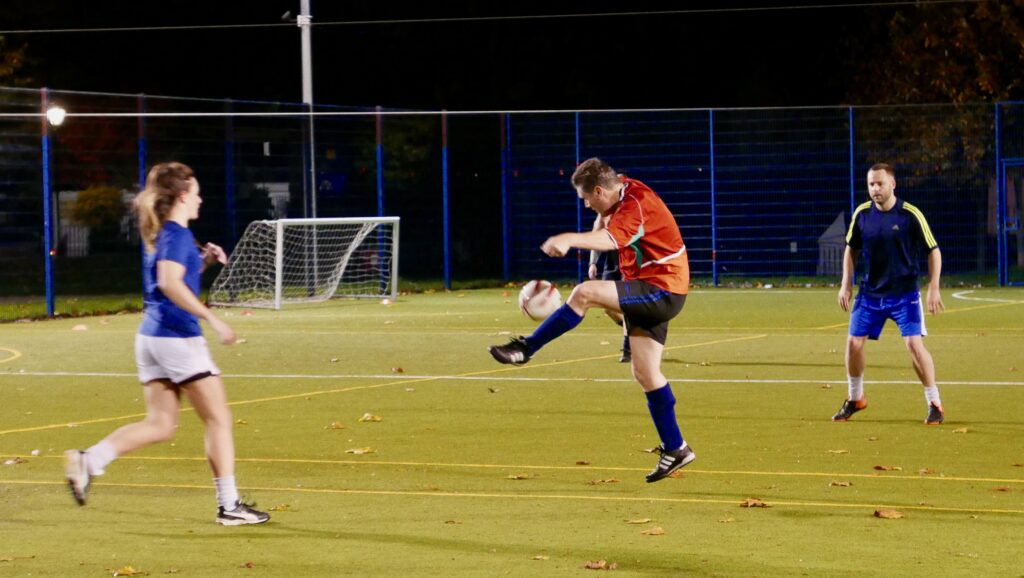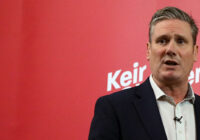On July 4, Britons went to the polls. They gave the Labour Party 411 seats in the 650-seat House of Commons and thus elected Keir Starmer (or Sir Keir Starmer, to give a title he never insists on) as prime minister.
Keir’s election has changed Britain’s trajectory and — hopefully — its standing in the world. As many others have said, after the ignominious prime ministerships of Boris Johnson and Liz Truss, we at last have adults running our government. It is an event that I have been hoping and working for since 2014 when he sat at my dining table for the first time.
Let me explain. Keir and I live within the same constituency — Holborn and St Pancras, in central London. In that year, our local member of Parliament, Frank Dobson, announced he was standing down, opening the way for a new MP. Our constituency is a safe Labour seat and highly desirable.
Our local party had three excellent candidates (as well as several also-rans) to choose from. They included the chair of Camden Council, our local administration. She was a woman, and we were keen to have more gender balance in Parliament. Then there was the chair of our own Labour Party — a fine young Asian lawyer, and we also wanted more ethnic diversity. And there was a very popular local doctor. We would have happily backed any of them.
Then, out of the blue, up popped Keir Starmer. Very few of us knew him. In his former role as Director of Public Prosecutions, he ran key cases across the country. It was a position that prevented him from being a member of any party. In November 2013, he stood down and rejoined Labour, of which he had been a member since his youth.
When Keir decided to stand for Frank Dobson’s seat, he began ringing local party members, asking to come and see them. And so it was that he arrived at my home for coffee.
Now, Keir is someone who listens more than he talks. But there is something about the way he does it that is entirely engaging. You know he is really listening, taking in your every word. Within 10 minutes I thought: “He’s not just our next MP, he’s our gift to the whole Labour Party.”
I have got many things wrong, but this was one I was right about. Keir took months off and embarked on an intense campaign of meeting and listening to as many local party members as possible. I went with him, knocking on doors, sitting in kitchens.
It was a strategy that none of the other candidates adopted. They spoke to party officers and relied on their local reputations. But Keir’s strategy paid off in spades. When the selection meetings took place, party members whom we had never met before came out in droves. Keir won hands down.
The fact that he was selected against apparently insuperable odds should tell us something. Our new prime minister is intensely competitive, intensely strategic and intensely hardworking. Once he adopts a course, he follows it, no matter how difficult it may appear. His focus is extraordinary.
As his semi-official biographer Tom Baldwin records, Keir lived in a North London flat as a young man. It had a rotting floor and was above a sauna and massage parlor. One friend’s father was hesitant to visit the building as he feared others would think it was a brothel. One day, thieves broke in. Keir was so buried in his work as an attorney, concentrating on the arguments, that he didn’t notice.
There are many stories of hardship in Keir’s early days as a barrister supporting radical causes, but perhaps one stands out. It is the McLibel story. In 1986, a group of environmental activists distributed a six-page amateurish leaflet entitled, “What’s wrong with McDonald’s: everything they don’t want you to know.” It accused the giant corporation of a long list of evils, from producing unhealthy hamburgers to clearing the Amazon rainforest. McDonald’s decided to take them on and brought a libel case that, in time, the company would deeply regret.
Most members of the penniless activist group gave up and paid a small fine. But two — Helen Steel and David Morris — refused, and the case went to court. It was to become the longest libel trial in British history, with experts flying in at their own expense from around the world to support them. But behind the scenes, they had another supporter. Keir Starmer gave them free legal advice for ten long years. Without it, they would hardly have won the final settlement which found that both sides had arguments in their favor.
There are many stories of this kind. Keir seldom refers to them. But a word of warning to anyone who gets to know our prime minister: don’t take him on at football. I have played against him in an unofficial game we used to have among Labour activists. He’s as tough as they come. I am a South African, and the only way I could survive was to use the tactics I knew from my early days playing rugby. He was a little taken aback, as I broke all the rules, something that Keir would never do.

I doubt that he will have time for this for a while, but one thing you can be sure of: He will continue his support for Arsenal — our local North London football side — and for the English team, no matter how well or badly they play.
Passionate, radical and doggedly determined, as well as astute and knowledgeable. That is the man that I have come to know and to respect.
The views expressed in this article are the author’s own and do not necessarily reflect Fair Observer’s editorial policy.
Support Fair Observer
We rely on your support for our independence, diversity and quality.
For more than 10 years, Fair Observer has been free, fair and independent. No billionaire owns us, no advertisers control us. We are a reader-supported nonprofit. Unlike many other publications, we keep our content free for readers regardless of where they live or whether they can afford to pay. We have no paywalls and no ads.
In the post-truth era of fake news, echo chambers and filter bubbles, we publish a plurality of perspectives from around the world. Anyone can publish with us, but everyone goes through a rigorous editorial process. So, you get fact-checked, well-reasoned content instead of noise.
We publish 2,500+ voices from 90+ countries. We also conduct education and training programs
on subjects ranging from digital media and journalism to writing and critical thinking. This
doesn’t come cheap. Servers, editors, trainers and web developers cost
money.
Please consider supporting us on a regular basis as a recurring donor or a
sustaining member.
Will you support FO’s journalism?
We rely on your support for our independence, diversity and quality.








Comment